Listen to Samina Ahmed, Crisis Group's Senior Asia...
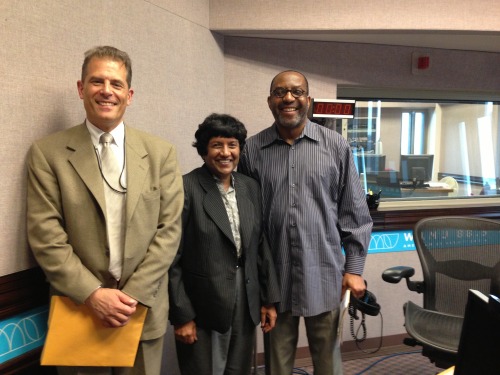
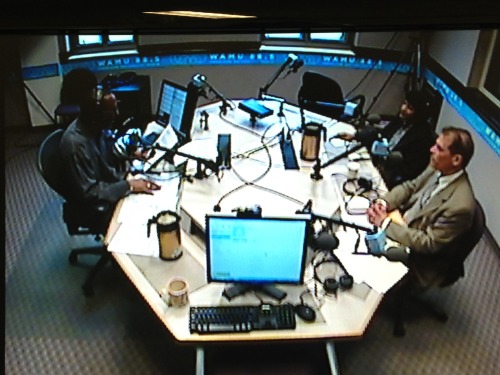
Listen to Samina Ahmed, Crisis Group's Senior Asia Advisor, discuss the US drone policy on The Kojo Nnamdi Show's "Drones Divide US And Pakistan."
East Timor looks to spend new energy fund bonanza | BBC East...
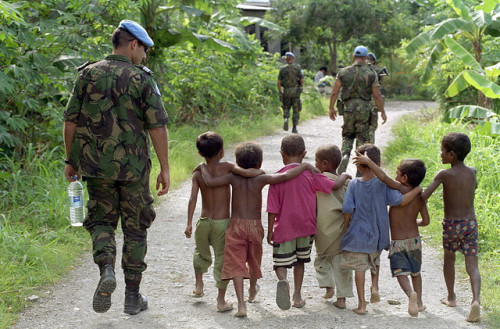
East Timor looks to spend new energy fund bonanza | BBC
East Timor is one of the poorest nations in Asia and also one of the newest.
Having achieved independence eleven years ago, it has relied on outside help for many years.
But that could be about to change.
Vast offshore oil and gas fields in the Timor Sea have led to the formation of a petroleum and gas fund worth an estimated $11.7bn (£7.6bn).
A recent report by the International Crisis group warned that it will be hard for the nation to make progress in providing economic opportunities without exhausting some of those revenues.
Photo: United Nations Photo/Flickr
North and South Korea tentatively agree to talks on shuttered...
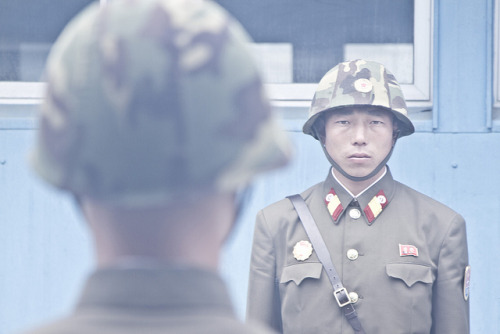
North and South Korea tentatively agree to talks on shuttered industrial zone | CNN
By Jethro Mullen and K.J. Kwon
The North Korean decision to halt operations surprised some observers, since Kaesong was considered an important source of hard currency for Kim Jong Un's regime.
The proposal for talks regarding the complex indicates that "maybe the cost of closure of Kaesong is greater than they had anticipated," said Daniel Pinkston, a senior analyst for the International Crisis Group covering Northeast Asia.
At the same time, Pinkston said, North Korea's key ally China, which has expressed displeasure with some of Pyongyang's recent behavior, may not have been "as generous as the North Koreans have been expecting in terms of aid, assistance, trade and investment."
Photo: Gabriel Britto/Flickr
Turkey Finds that Trouble Knows No Bounds | Chatham House By...
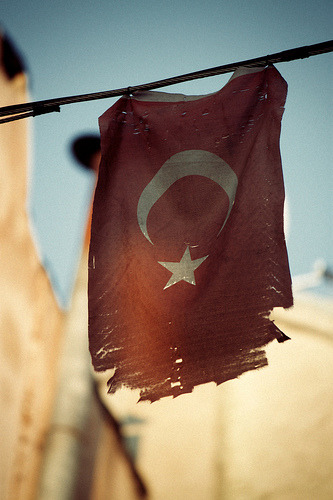
Turkey Finds that Trouble Knows No Bounds | Chatham House
By Hugh Pope, Crisis Group's Turkey/Cyprus Project Director
As instability undermines the Arab states established in the post-First World War map of the Middle East, a now vigorous Turkey, heir of the Ottoman Empire that was the main loser from that 20th century order, is taking a new look at the region.
'Those borders are all false', sniffed one of Turkey's former top diplomats over dinner in February. Recep Tayyip Erdogan, the Turkish Prime Minister, says that Syria's growing troubles since 2011 now amount to 'an internal affair' for Turkey, while in private officials talk breezily of Syria as 'our former province'.
In the capital Ankara, a senior security official agreed that tumult in Syria over the past two years had vaporized much of the Cold War frontier of barbed wire and watch-towers. 'The borders have become meaningless,' he said.
In short, a major change is under way after decades in which Turkish policy was predicated on making the best of what it found in the Middle East.
Photo: Carlo Rainone/Flickr
Syrian Conflict Reaches Beyond Borders | NPR Fresh Air More than...
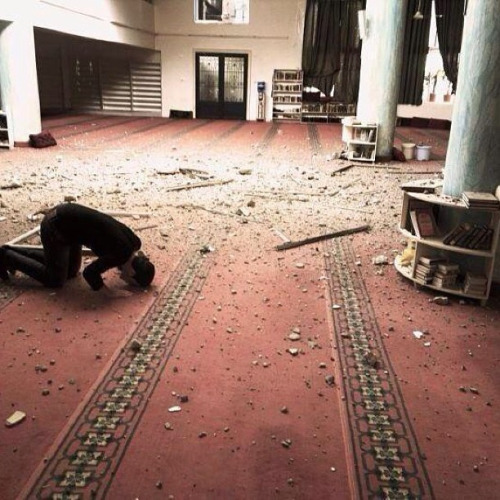
Syrian Conflict Reaches Beyond Borders | NPR Fresh Air
More than 80,000 people have been killed so far in Syria's civil war, and 4 million of Syria's 20 million people have been displaced. Robert Malley, the program director for Middle East and North Africa for the International Crisis Group, calls it "one of the most catastrophic humanitarian disasters we're facing."
Listen to the interview here.
Photo: R Sameer/Flickr
Our recent blog post on the protests in Turkey was featured in...
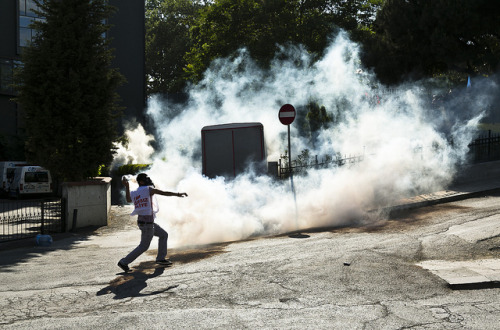
Our recent blog post on the protests in Turkey was featured in the Wall Stret Journal's "What We're Reading Wednesday," by Gerald F. Seib and David Wessel. Read the full article here.
Photo: Eser Karadağ/Flickr
Examining Iraq's Latest Upsurge In Violence | NPR Morning...
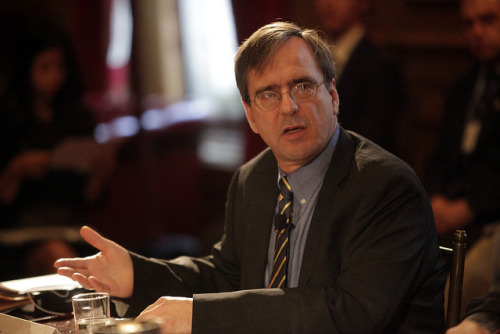
Examining Iraq's Latest Upsurge In Violence | NPR Morning Edition
Sectarian violence has flared in Iraq a year and a half after the departure of American forces. The U.N. reported that more than 1,000 people were killed there in May, the deadliest violence since the height of the insurgency during the U.S. occupation. For more on what's causing the chaos, Linda Wertheimer talks with Joost Hiltermann, an Iraq expert with the International Crisis Group.
Listen to the interview here.
Watch Crisis Group's Turkey/Cyprus Project Director, Hugh...
Watch Crisis Group's Turkey/Cyprus Project Director, Hugh Pope, discuss the Occupy Gezi movement in this video from Now This News.
Listen to Fresh Air from NPR today at 3pm EDT to hear Robert...
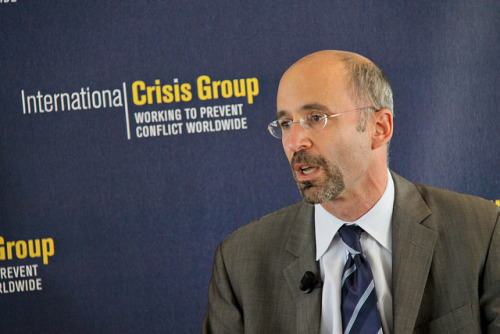
Listen to Fresh Air from NPR today at 3pm EDT to hear Robert Malley, our Middle East and North Africa Program Director, discuss the conflict in Syria with Terry Gross.
Turkey's Protests: The Politics of an Unexpected Movement from...
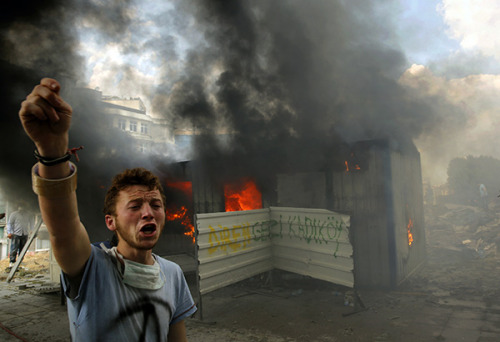
Turkey's Protests: The Politics of an Unexpected Movement
from Crisis Group's blog, "Solving the EU-Turkey-Cyprus Triangle"
by Didem A. Collinsworth and Hugh Pope
Q – How did the Istanbul unrest start and how widespread is it?
The Istanbul unrest started out on 27 May as a small sit-in by a handful of people who wanted to prevent the uprooting of trees in Gezi Park, a rare patch of green in central Istanbul. Removing the trees was part of a government plan to redesign the adjacent Taksim Square. When, early on Thursday, 30 May, police tried to expel the Gezi Park activists with tear gas and set their tents on fire, the protests morphed into a popular movement.
During the next 24 hours, thousands joined in the demonstrations. The police tried to disperse them using high-pressure water hoses and tear gas, which Human Rights Watch described as an "excessive use of force against protestors". Slogans began to change from protests against the Taksim Square project – which aimed to put a shopping mall on the park, add a sweeping pedestrian plaza, build a big new mosque, and clear up a clutter of shops blocking the view of a cathedral – to demands for the resignation of Prime Minister Erdoǧan and the ruling Justice and Development Party (AKP) government. By Saturday 1 June, 100 people had been reported wounded.
Protests grew exponentially, first to other neighbourhoods in Istanbul, and then to other provinces, with over 60 of Turkey's 81 provinces experiencing some form of protest by Monday 3 June. In Ankara and İzmir, clashes were at times fierce. One protestor was shot dead in unclear circumstances in Hatay province, another killed when a car ran into a crowd of protestors in Istanbul. Milliyet newspaper reports 3,400 protestors arrested nationwide, with many later released, and the Doctors' Union reports 1,800 protestors wounded by 4 June. The government says 244 police have been injured too. Sunday and Monday nights, 2 and 3 June, saw especially ugly battles in Ankara and on two major streets in Istanbul, where several badly hurt protestors were taken in for treatment in a waterfront Ottoman mosque commandeered by volunteer medics.
Photo: Reuters
Ethiopia: Thousands protest political repression | Miami...
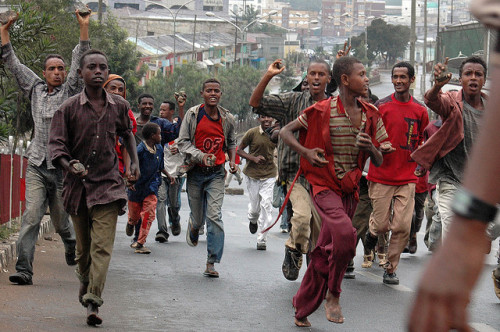
Ethiopia: Thousands protest political repression | Miami Herald
By Kirubel Tadesse
ADDIS ABABA, Ethiopia — Thousands of Ethiopian demonstrators took to the streets of the capital Sunday demanding the immediate release of jailed journalists and activists in a rare show of public opposition to the ruling party which maintains strict control over the East African nation.
Protesters marched along major streets in the capital, Addis Ababa, shouting "We need freedom," and "We need justice." The peaceful rally was the first major demonstration since 2005 post-election unrest when security forces killed hundreds of protesters.
FULL ARTICLE (AP via Miami Herald)
Photo: Unrest in Addis Ababa in June 2005.
Credit: Andrew Heavens/Flickr
Sunni-Shia tensions flare in Iraq, causes unaddressed | Ahram...
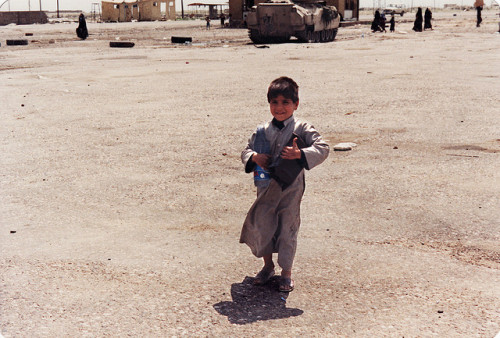
Sunni-Shia tensions flare in Iraq, causes unaddressed | Ahram Online
By Bassem Aly
Iraqi Prime Minister Nouri Al-Maliki, a Shia, parliament speaker Osama Al-Nujaifi, a Sunni, along with other high-level political and religious figures met Saturday in an attempt to contain the situation.
No clear results from the meeting have been announced until now.
"This is a political, not only sectarian conflict," says Maria Fantappie, an analyst of Iraqi affairs at the Brussels-based International Crisis Group.
"The political representation of the Sunnis in the Iraqi politics remains the main outstanding issue, which makes a compromise between all parties a hardly possible scenario," she argued.
Fantappie pointed out that Al-Maliki has not yet seriously engaged in negotiations, while Sunni protesters failed to form a single united bloc within the country's different provinces.
Photo: John Martinez Pavliga/Flickr
CrisisWatch N°118 | (01 Jun 2013) The Syrian crisis continues...
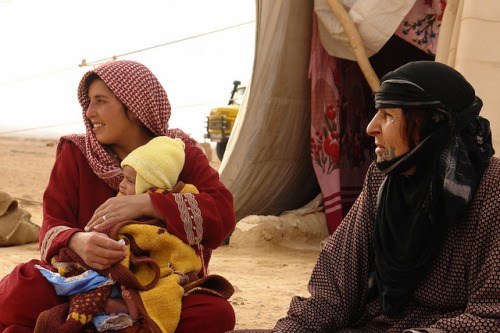
CrisisWatch N°118 | (01 Jun 2013)
The Syrian crisis continues to draw in its neighbours, threatening to set off a wider regional conflict. Israel launched its first major strike inside Syria, sending jets reportedly to target Iranian missiles bound for Hizbollah. The Syrian regime threatened to retaliate immediately and harshly to any further attack, and to turn the Golan Heights into a new front against Israel. The EU lifted its arms embargo on Syria but said there were no immediate plans to arm the rebels. Russia's decision to honour its 2010 contract to deliver S-300 anti-aircraft missiles to the Assad regime prompted calls from the U.S., France and Israel to reconsider. Israel's defence minister suggested Israel could resort to force to prevent delivery of the weapons. The U.S. and Russia agreed to convene a new peace conference in Geneva in June, but it remains uncertain whether the parties will come to seek compromise. (See our recent commentary in French).
Lebanon is becoming ever more deeply implicated in the Syrian conflict. Hizbollah extended more overt and extensive military support to the Syrian regime, including fighting against rebels in al-Qusayr near the Lebanese border, and for the first time openly declaring its military support to the regime. Lebanese Sunni Islamists are increasingly backing Syria's rebels. Tensions increased within Lebanon, with sectarian violence between Sunnis and Alawites in Tripoli reaching levels not seen since the country's civil war.
In Iraq more than a thousand people were killed in sectarian attacks and bombings fuelled by the country's deepening political crisis, making May the country's deadliest month in five years. Hopes for a political breakthrough faded as Prime Minister Nouri al-Maliki and parliamentary speaker Osama al-Nujaifi blamed each other for mounting violence. The government's crackdown on Sunni protesters continued to spur a re-emerging insurgency and retaliatory attacks, leaving the country again teetering on the brink of civil conflict.
In Bahrain the Shiite opposition al-Wifaq announced its withdrawal from the National Dialogue for two weeks after government security forces raided the house of the most prominent Shiite cleric Issa Qassem. In the face of political impasse, al-Wifaq called for intensified protests ahead of polls scheduled for next year.
In Madagascar, presidential elections scheduled for July and intended to end four years of political deadlock were postponed after transitional president Andry Rajoelina refused to step down ahead of polling, violating the electoral law. The September 2011 transition roadmap appeared to be unravelling as former first lady Lalao Ravalomanana, Rajoelina and former president Didier Ratsiraka all announced that they would contest the election, and the electoral court validated their applications. Rajoelina and Ratsiraka had pledged not to run, while Lalao Ravalomanana's candidacy is widely viewed as a proxy for her husband, former president Marc Ravalomanana, who had also promised not to compete. The African Union and the Southern African Development Community said they would not recognise the outcome of the elections should any of these candidates win, and the UN said its continued support is contingent on compliance with the roadmap.
Protests against Kyrgyzstan's largest gold mine escalated and took a violent turn in late May. Protesters demanding an end to alleged environmental pollution from operations at the mine and calling for it to be nationalised blocked the road to the mine and cut off power. The government declared a state of emergency after police clashed with some 3,000 protesters who were attempting to storm mining company offices. The mine is one of Kyrgyzstan's biggest sources of foreign earnings, and disruption to its operations could damage the country's faltering economy. Despite the protesters' environmental demands, much of the unrest appears to have been organised by the nationalist Ata Jurt party. Protestors in the southern city of Jalal-Abad seized government buildings demanding the release of three jailed Ata Jurt members.
In a boost to Colombia's peace process, the government and the FARC, or Revolutionary Armed Forces of Colombia, announced on 26 May that they had reached an agreement on rural development, the first agenda item in peace talks which began over six months ago (see our recent blog post). President Juan Manuel Santos said that the four main points include access to and use of land, rural development programs, health and education for the rural poor, and food security. The talks will now turn to political participation. Hopes that peace talks with Colombia's second guerrilla group the ELN (National Liberation Army) would begin in May suffered a setback, however, when the ELN killed eleven soldiers in an ambush in Norte de Santander.
In Myanmar the government and the Kachin Independence Organisation agreed a seven-point peace pact at the end of the month. The talks, convened for first time in the government-controlled capital of Kachin state, had previously been in deadlock. The deal means that in principle hostilities with all major armed groups in the country have stopped. Crisis Group identifies a Conflict Resolution Opportunity for Myanmar. The month also saw the Rakhine State government announce it was reactivating an earlier local directive imposing a two-child limit for families in Muslim-majority areas of the state, prompting local and international condemnation. There was a further outbreak of Buddhist-on-Muslim violence at the end of the month, this time in the northern town Lashio; one person was reported killed (see our recent blog post and commentary).
Photo: James Gordon/Flickr
"As things stand, the regime cannot reconquer, it cannot reconcile, it cannot reform and it cannot..."
"As things stand, the regime cannot reconquer, it cannot reconcile, it cannot reform and it cannot rebuild."- Peter Harling, Crisis Group's Iraq, Lebanon, and Syria project director, in Reuters' "Analysis: Syrian war seen dragging on for years"
Hope on Israel-Palestine? Maybe, Just Maybe | The Nation By Bob...
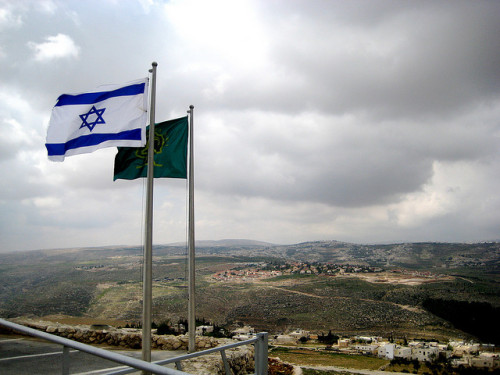
Hope on Israel-Palestine? Maybe, Just Maybe | The Nation
By Bob Dreyfuss
Something might actually be happening in the Middle East, that is, on the Israel-Palestinian front. It's not an area that's usually visited by The Dreyfuss Report, because it seems permanently stalemated and stuck. (We're talking decades here.) But Secretary of State John Kerry might be up to something.
Photo: Jamie Lynn Ross/Flickr
The Coming West Bank Instability | The Daily Beast By Ali...
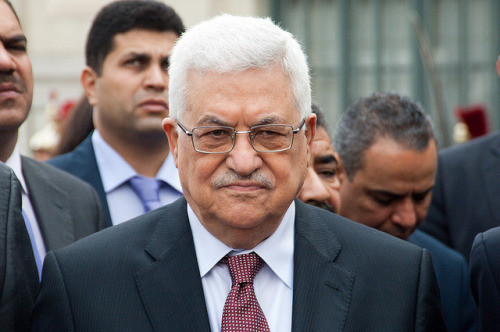
The Coming West Bank Instability | The Daily Beast
By Ali Gharib
Is the West Bank about to erupt into a dangerous unrest? According to the International Crisis Group, the answer is complicated. Ferment isn't imminent, but the conditions for it are ripe, said the group in a new report out this week.
Protests began to rise last fall over economic conditions in the occupied territory, and spiked again this year as Palestinians took to the streets over the treatment of hunger-striking Palestinians held in Israeli prisons. While many predicted a third intifada—a mass uprising—the protests eventually subsided. If more, society-wide protests emerge, they could not only raise tensions with the occupying Israeli forces, but also bring down the Palestinian Authority, the territory's limited self-government. Instability, in other words, remains a very real fear.
ICG identified the primary cause of the instability—as we have seen throughout the Arab Uprisings of the past two years—as the lack of the PA's legitimacy. "[T]he latest demonstrations are a symptom of a much longer-term trend of Palestinian frustration with the absence of a political horizon—with the seeming interminability of an occupation soon to enter its 46th year and the sense that they have been cheated by the Oslo framework that many initially believed would bring about statehood," said the report. That's why the efforts to address the specific causes of protests—propping up the PA with just enough cash to get through its fiscal crisis or dealing with prisoner issues—act as mere band-aids. The threat of a future mass uprising won't disappear until the larger issues plaguing the Palestinians do.
FULL ARTICLE (The Daily Beast)
Photo: Flickr/Olivier Pacteau
globalpost: By Jessica Phelan Cyclone Nilam has reached the...
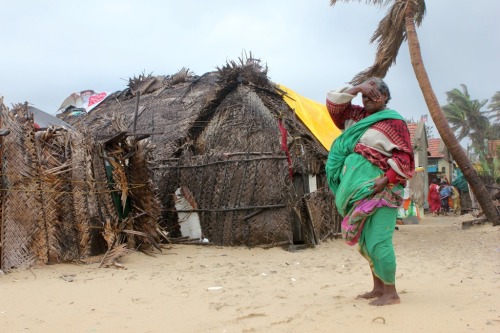
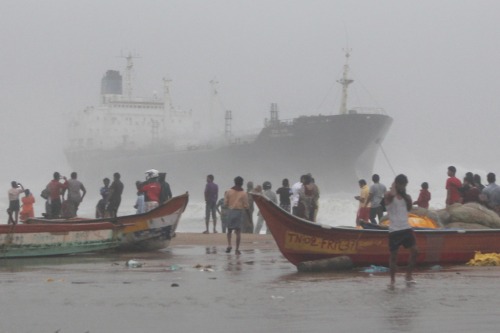
By Jessica Phelan
Cyclone Nilam has reached the southeast coast of India, where residents are braced for floods, power cuts and widespread damage.
Nilam made landfall south of Chennai, the capital of Tamil Nadu state, at about 4.30 p.m. local time, NDTV reported.
It was carrying winds of up to 62mph and is said to have uprooted several trees, though no major damage has yet been reported.
Forecasters are warning people to expect a storm surge of up to 1.5 meters, high seas, gale force winds and heavy rainfall for up to 48 hours in Tamil Nadu, neighboring Puducherry and Andhra Pradesh.
India's Meteorological Department expects "extensive damage" to vulnerable rural homes, as well as the destruction of crops.
Fishermen have been warned to stay out of the sea for at least 24 hours.
An oil tanker was stranded in rough waters in the Bay of Bengal, the Times of India reported, and a lifeboat sent to rescue the crew capsized. Six people have been brought to shore so far; another eight remain at sea.
The area in Nilam's path houses a nuclear power plant, the Madras Atomic Power Station at Kalpakkam.
The Times of India cites officials as saying that both the site's reactors were operating safely and extra staff had been deployed to monitor key systems. The plant is designed to withstand winds of up to 160kmph (99mph), the statement said.
The region has been hit by similar disasters in the past, including the 2004 tsunami, which killed more than 12,000 people in Tamil Nadu, and last year's Cyclone Thane, in which around 30 people died.
This latest storm will test the extra preparation measures put in place by the government at a cost of billions of rupees, the Wall Street Journal said.
Almost 4,000 people had been evacuated from Tamil Nadu by the time the storm hit, NDTV said, and hundreds of emergency shelters set up in Chennai.
Cyclone Nilam has already brought floods to Sri Lanka, which is still feeling the effects of its strong winds and rains, the BBC reported. The worst of the storm did not hit the country directly, however.
"Senseless, irrational, reactionary and extremist behaviour" in...
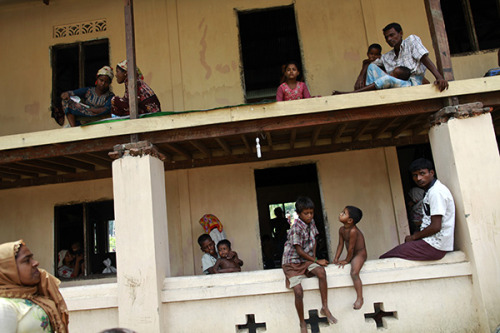
"Senseless, irrational, reactionary and extremist behaviour" in Myanmar
By Jim Della-Giacoma, Crisis Group's Asia Program Director
"Whatever our prospects for a bright future may be, we are still at a sensitive stage in the reform process where there is little room for error; as such, senseless, irrational, reactionary and extremist behaviour and action by some of our citizens may lead to the failure of the reform process itself. I would like to seriously caution you that we, as citizens, must refrain from doing anything that will jeopardize our transition to a peaceful, democratic nation."
This quote from President Thein Sein's speech to the nation was not the manifesto of someone worried about his party gaining votes or being re-elected as president. Made after the release of the Rakhine Commission report on 6 May, it was a bold statement of vision for his country as a multi-ethnic and multi-religious nation. It came at a time of crisis as essentially Buddhist-on-Muslim violence has been spreading. It was not a view necessarily supported by many of his compatriots who share his Buddhist religion or Bamar ethnicity. The near-silence of the National League for Democracy's Aung San Suu Kyi on this issue in recent months has only underlined how far out in front of popular opinion he has been in his rhetoric.
As the violence continues between majority Buddhists and minority Muslims in Myanmar, the time has come for the government to turn the president's rhetoric into action. Thein Sein, a former general, needs to work harder to bring all levels of the government in line with his vision, including on behalf of the Muslim Rohingya in Rakhine State.
The recently reported decision of the local government in Rakhine State to restrict the number of children that Muslim Rohingya families can have is Exhibit A in the category of "senseless, irrational, reactionary and extremist behaviour" that needs to be avoided if Myanmar's current transition is to bring stability to the nation and benefit all. The decision would revive of a military-era directive in Rakhine State that had stopped being applied some time ago. Abandoning her previous reticence on this issue, Aung San Suu Kyi has rightly condemned it as illegal and a violation of human rights. President Thein Sein now needs also to condemn the revival of this policy and ensure its implementation does not come to pass.
Whatever their genesis in local or national law-making, such discriminatory policies are forbidden by international human rights law, including the UN Convention on the Rights of the Child, that Myanmar has ratified. Furthermore, the Rakhine State government's pronouncement also goes against the spirit and the letter of Rakhine Commission report in April, which stated:
"If, as proposed [by local authorities], family-planning education is provided to the Bengali [Rohingya] population, the Government should refrain from implementing non-voluntary measures which may be seen as discriminatory or that would be inconsistent with human rights standards."
The Rohingya, concentrated in northern Rakhine State, are the most repressed population in Myanmar. Referred to as Bengalis by many in Myanmar, they have lived in this area for generations, with most arriving during the British colonial period. Since independence in 1948, they have long faced restrictions and discrimination from the state as well as prejudice, even hatred, from the local Rakhine Buddhist population, which controls much of the provincial civil service. A restrictive 1982 citizenship law has not helped, but if it were more fairly applied most Rohingya would qualify for one of three levels of legal status, one of which is full citizenship. For decades, even that flawed law has not been fairly applied and, in the hands of prejudiced local officials, it has been a tool to marginalise the Rohingya. This discrimination has manifested itself in a range of ways, including through restrictions on travel outside the village-tract. This has meant limited work opportunities for the Rohingya and great difficulty accessing state services such as education and health. In addition, they are often denied essential documents for marriage and birth registration. Without these documents, their legal status is put in jeopardy and they are easily cast as outsiders. Even before the violence against the Rohingya in 2012 killed almost 200 people and displaced more than 100,000, they faced forced labour, arbitrary taxation, and land confiscation.
Among the restrictions is a ban on polygamy and registering more than two children, which applies in the Muslim-majority northern parts of Rakhine. This has apparently been in place at the local level since at least 2005, but by some accounts more than a decade before that. Rather than announcing a "new" policy, the local Rakhine State government has reactivated this old directive — which has always been contrary to international human rights law — which was no longer being actively applied. While such discrimination was accepted practice under previous authoritarian regimes, it should not be tolerated by an aspiring "peaceful, democratic nation". It is exactly the kind of "senseless, irrational, reactionary and extremist behaviour and action by some of our citizens" that the president cautioned against in his speech. It is also inconsistent with his pledge that "the Government will take all necessary action to ensure the basic human rights of Muslims in the Rakhine State".
While the president's vision is long-term, the need for action is increasingly urgent. There is news of fresh violence and intercommunal tensions almost every week. On 29 May, intercommunal violence reportedly struck Lashio, the capital of northern Shan State, with a mosque and some Muslim shops burnt. Citizens in Myanmar of all religions, from the president down, need to think and act carefully. An important step towards stopping the spread of this violence is to prosecute all perpetrators, whatever their religion or societal status. With reports that some monks are involved in leading mobs or spreading hatred, this will not be easy. But firm action within the law is called for. As the president said in his 6 May address, the future of the country's transition may be at stake.
The president's words must become his government's deeds. The Union or national government needs immediately to overturn the blatantly discriminatory restriction on the size of Rohingya families, just as it needs to do more to better protect them from violence and other forms of victimisation. This would be in line with his own pledge at the end of his speech: "I also want to inform you that the Government will provide genuine and decisive leadership in resolving the conflict in Rakhine State in ways that will ensure national security, promote rule of law and protect human rights."
Fundamental human rights and democratic principles are at stake – and so is the president's credibility.
from Crisis Group's blog, Resolving Conflict in South East Asia
"In Israel/Palestine, events with potentially major consequences are frequent; with the system so..."
"In Israel/Palestine, events with potentially major consequences are frequent; with the system so brittle, virtually any substantial shock could have significant repercussions: Abbas's departure and the attendant succession battle; intensified settler violence; large clashes on Jerusalem's Holy Esplanade; the death of a hunger striking prisoner; or an act of spectacular political violence by either side that spins out of control."- from Crisis Group's most recent report, Buying Time? Money, Guns and Politics in the West Bank
Buying Time? Money, Guns and Politics in the West...
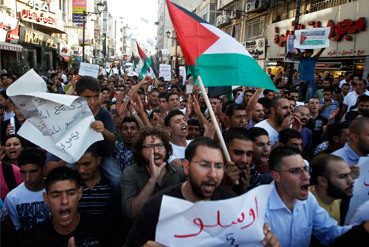
Buying Time? Money, Guns and Politics in the West Bank
Jerusalem/Ramallah/Brussels | 29 May 2013
The West Bank is experiencing rising instability and insecurity that palliative measures can help contain but can neither reverse nor end in the absence of a broad political settlement.
In its latest report, Buying Time? Money, Guns and Politics in the West Bank, the International Crisis Group examines political, economic and security conditions in the West Bank. The last year was the most tumultuous for the Palestinian Authority (PA) since Hamas seized Gaza in 2007. For now, the mood has quieted somewhat, but if relevant parties do not get beyond managing conflict triggers to addressing root issues, today's superficial calm could well be fleeting.
The report's major findings and recommendations are:
- Several factors argue against a looming escalation: the Hamas-Fatah split has rendered popular mobilisation dangerous to both the West Bank and Gaza regimes; Palestinians remain tired from the consequences of the second intifada; and, importantly, foreign assistance has helped reshape the West Bank's political economy while giving most of its residents an interest in preserving the system.
- At the same time, many of the conditions for an uprising are in place: political discontent, the leadership's loss of legitimacy, hopelessness, economic fragility, increased violence and an overwhelming sense that security cooperation serves an Israeli – not Palestinian – interest.
- The "collapse" of the PA is less likely to be a discrete event, and its "dissolution" less a matter of conscious intent, than a process: the gradual hollowing out of institutions that were never particularly strong.
- Steps such as regularising tax revenue transfers to the PA that Israel is obligated to make, as well as greater efforts by Israel to rein in settler attacks against Palestinians and to curtail incursions by its security forces into ostensibly Palestinian-controlled areas, could help stabilise the West Bank for now. But at some point Palestinians may well decide their long-run well-being would be better served by instability, and only by rocking the boat might they come closer to their desired destination.
"There is an understandable temptation to renew negotiations as a way to address – or at least distract attention from – the deep causes of rising West Bank instability", says Nathan Thrall, Middle East Senior Analyst. "But a breakdown in talks would risk accelerating the very dynamics that the negotiations are meant to forestall".
"If aid money has bought time, time has not changed the nature of the Israeli-Palestinian conflict, cannot provide insurance against a deteriorating political-security situation and cannot purchase the kind of legitimacy the Palestinian leadership will need to control and guide its people", says Robert Blecher, Middle East and North Africa Deputy Program Director. "The time that money buys comes at a price, since the progressive atrophy of the Palestinian political system inescapably will make any future peace process both less legitimate and more fragile".














Did you know that that you can earn cash by locking premium pages of your blog / website?
ReplyDeleteSimply open an account on AdscendMedia and use their Content Locking plugin.